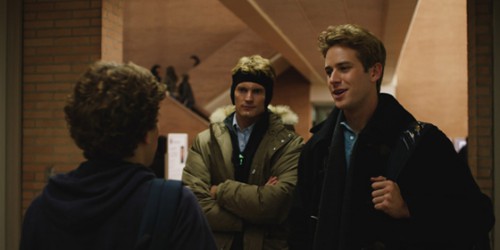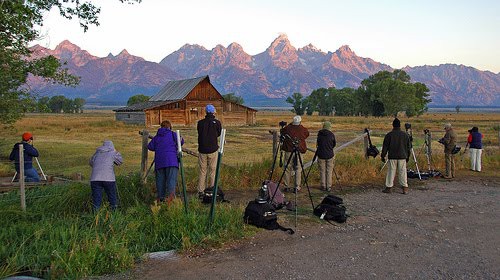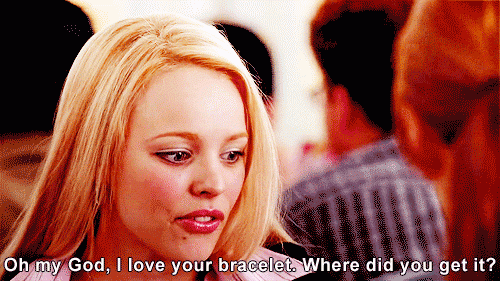
Sitting in a breezy movie theater waiting for Jurassic World to start, my friend looked up from his Facebok timeline to ask me a question. We had been talking earlier about the devastating death of a friend and classmate, and in the last hour it had started to dominate our News Feed. “Dude, are we supposed to like these posts?” He asked. “It doesn’t seem quite right.”
In this day and age, it seems like nothing has truly happened until it’s documented online. As the saying goes, “Pics or it didn’t happen.” Jacob Silverman wrote an article with the phrase as his title, and he has some good things to say on the effects of social media’s ubiquity. One particularly provocative line reads, “Notifications crowd out contemplation.”
But the need to post is real. Ate a delicious and quirky gourmet meal? That definitely deserves an insta. Lost the championship game? Tell the world via Twitter how much you love your teammates. Best friend’s girlfriend’s birthday? Like her picture so she’s reassured that her boyfriend’s buddies like her.
I think that the cynical thoughts that crowd my head as I wince and cringe through my timeline (but don’t prevent me from looking at it obsessively) are grounded in selfishness, and my radar being tuned sensitively to selfishness in others. It’s the Matthew 7:3-5 scenario. I’m quick to see the speck in a friend’s eye as they post something with an ulterior motive. My go-to move in this category is to send embarrassing Snapchats of a friend to the rest of my friends, “accidentally leaving out” the subject. There’s the log.
So why does the need to post irk me? Could it be I’m still recovering from a couple obsessive twitter years of 5+ tweets a day? That’s definitely a contributing factor. Nathan Jurgenson talks about the “Facebook Eye” in an article for the Atlantic, putting forth that Facebook has trained people to take in the world with the ever-present thought, is what I’m experiencing worth documenting and sharing with all my followers? To borrow from Walker Percy, is this an authentic, verifiable experience? Personally, I developed the Twitter eye. There wasn’t much vision there.
I think I take issue with the constant need to post for three reasons: it encourages self-loathing, the posts can feel dishonest, and they create negative competition.
Self-loathing
Social Media activity creates and augments regret. I see a group of friends on a fun trip (they’re all laughing and having a great time from what I can see) and my greatest fears of missing out (FOMO) are realized. Yet I make sure to scroll through every picture and take a thorough account of all their doings. If you, like me, find some shelter in playing the victim, social media is the perfect outlet. My cat dies – I need to make sure people feel sorry for me and see what a terrible thing I’m going through – I post a picture of the cat with a heartfelt caption. Saul Bellow summarizes what’s wrong with this feeling in his novella, Seize the Day. A sage-like character says to the long-suffering protagonist, “Don’t marry suffering. Some people do. They get married to it, and sleep and eat together, just as husband and wife. If they go with joy they think it’s adultery.” I look longingly at an old crush’s new mobile uploads, pint of Ben and Jerry’s in hand. Self-loathing feels comfortable. I turn to Facebook and let it wash over me.
Honesty
I remember back in middle school ragging on girls who would tell their friends they “love” them all the time. I would chime in, “Oh yeah? Do you looove her?” To the extent that I was suspicious of the sincerity with which they used the word love, I was being serious. Four-letter words get my attention, love being one of them. “Love” isn’t “Like” and when I see it on the screen, it stands out. For me, if I love someone that’s a big deal, coming with its share of self-appointed laws and guidelines for correct treatment. I’ll occasionally post something and look back at it thinking, wow, you’re not making much sense and you sound like a fool. What does that mean? Is that what you really think? There’s so much wrapped up in putting my best, most attractive face on and saying the right thing at the right time that a layer of honesty is lost. In Gerhard Forde’s words, I’m not “calling a spade a spade.”
Competition
With the constant need for posts and shares and comments on every little occurrence, we can run into trouble when things become overwhelmingly inward focused. I’m not happy about my picture unless tons of people like it. A tweet isn’t funny unless it gets a few retweets. Our need for affirmation of ourselves and our aesthetic choices is present online like never before. So when I choose to post about somebody else, it becomes very difficult to leave my personal need of affirmation behind. It’s hard to transcend the law of comparison and approval from others on a platform completely powered by it.
In a study on virtual mourning on Facebook, the University of Toronto found that when FB users pass away, the process of memorializing the deceased is left to other users, and to varying effect. In some cases, they noticed “an environment of competition and coercion; thus, inducing a feeling that one has to contribute content to the deceased’s profile or memorial page. Thus, rather than Facebook acting solely as a venue for expression of sincere sentiment, an environment where there is war over who loved the deceased more was created.” This has always been a painfully difficult part about death and mourning. But social media’s me, me, me focus makes it difficult to escape the law of “I” when logged in. So when mourning a lost loved one, taking in a beautiful landscape, celebrating an anniversary or eating a delicious meal, my need to post can prevent me from truly experiencing the event and treating it as an opportunity to look beyond myself.
Walking out of the movie, I opened my Facebook app. I quickly liked the posts my friend had mentioned before hopping over to the Jurassic World fan page and liking it, too.

COMMENTS
2 responses to “Jurassic World and Facebook Elegies”
Leave a Reply

















Hit the nail on the head. HD, DP!
I have a FaceBook page, plain, no information, no photos, and not interesting at all. I was talked into making one several years ago by a co-worker. I never add anything to it. I’ve had several friends and relatives ask to befriend me. I make them my virtual friends, knowing that I’ve done all I’m going to do to pursue the FaceBook friendship. Every time I try to get in to it, the three irksome reasons that you mention, self- loathing, honesty, and competition, because I feel all of those things, stop me from going any further than just to open someone’s page. Thanks for explaining all of my feelings to me. I feel justified to do NOTHING with FaceBook now.